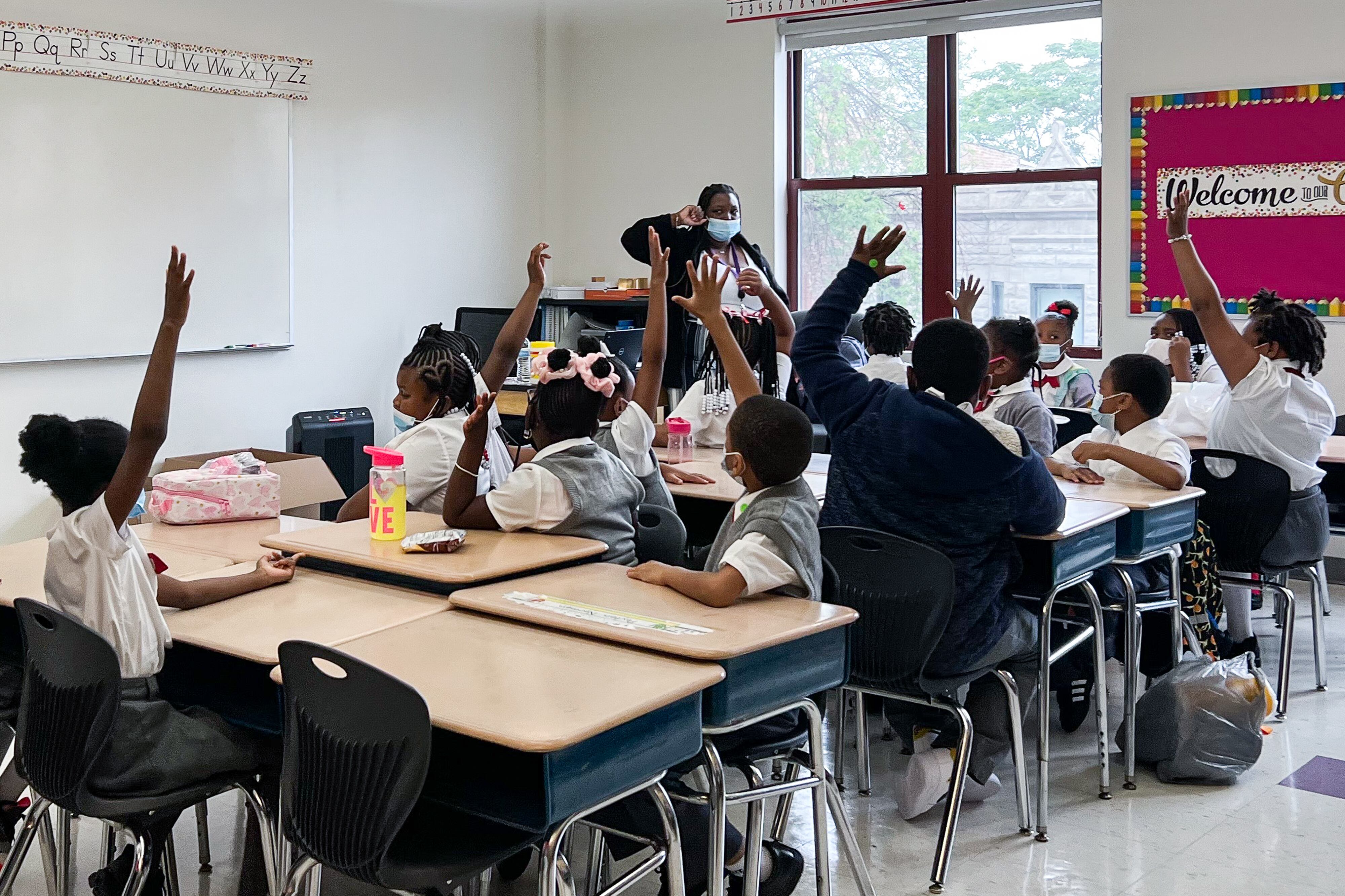The U.S. Supreme Court declined Monday to hear a case that hinged on whether charter schools are considered public or private.
The decision to punt indicates the highest court won’t offer an early hint on the validity of religious charter schools. It also leaves in place a patchwork of rulings on whether charter schools are considered private or public for legal purposes.
But the legal debates are not over.
“The issue will percolate and the Supreme Court will eventually hear a case,” predicted Preston Green, a professor of educational leadership and law at the University of Connecticut.
The case, Charter Day School. v. Peltier, focused on a dispute over a charter school’s dress code. The “classical” school in southeastern North Carolina had barred girls from wearing pants, as a part of an effort to promote “chivalry,” according to its founder.
Backed by the American Civil Liberties Union, some parents sued over this policy. They argued that the dress code amounted to sex-based discrimination and is illegal under the 14th Amendment to the U.S. Constitution. The school countered that it is not a government-run institution so is not bound by the Constitution, which does not apply to private organizations. (Charter Day also maintains that the dress code is not sexist.)
Last year, a divided circuit court sided with the parents. The majority ruled that charter schools, at least in North Carolina, are bound by the Constitution and that the dress code amounted to illegal discrimination.
The charter school appealed to the Supreme Court. Attorneys for the Biden administration argued that the lower court decision was correct and urged the court to accept that ruling. A string of conservative writers and groups had urged the court to take on the case.
On Monday, though, the Supreme Court declined to grant a hearing, leaving the circuit court decision in place. This indicates that there were not four justices who wanted to take on the case. As is typical, the court did not issue any further comment.
The case turned on whether Charter Day School is a private entity or a public “state actor.” This issue is also crucial for the brewing legal dispute over religious charter schools. If charter schools are state actors then they likely cannot be religious. If they are private, though, religious entities would have a stronger case for running charter schools. These debates will likely be tested in Oklahoma, which recently approved what could be the country’s first religious charter school. Ultimately, this may end up being sorted out via years of litigation — which could end up back at the Supreme Court.
Meanwhile, the court’s decision to pass on the case is a win for the parents who sought to change the North Carolina charter school’s dress codes.
“Courts may not subjugate the constitutional rights of these public-school children to the facade of school choice,” concluded the majority opinion for the Fourth Circuit court of appeals.
The majority also noted that the school’s founder said the dress code was intended to promote “chivalry,” including the idea that women should be “regarded as a fragile vessel that men are supposed to take care of and honor.” The court responded: “It is difficult to imagine a clearer example of a rationale based on impermissible gender stereotypes.“
The circuit court ruling applies to North Carolina, Maryland, South Carolina, Virginia, and West Virginia. Appeals courts elsewhere, though, have found that charter schools are private for certain purposes.
The school itself and allies had suggested that the decision would chill innovation in the charter sector. It would limit charter schools’ “autonomy, subjecting them to the same rules, regulations and political machinations that have crippled government-run school systems,” wrote Charter Day leaders in an op-ed for the Wall Street Journal.
Leading national charter school groups disagreed. The National Alliance for Public Charter Schools and the National Association of Charter School Authorizers have maintained that charter schools are fully public and thus the constitution applies. Both groups have said they support the parents over the charter school in this case.
On Monday, the Alliance praised the Supreme Court’s decision not to take the North Carolina case. “We are pleased that the Supreme Court has declined to hear the case, allowing the Fourth Circuit’s decision to stand,” Nina Rees, the group’s president and CEO said in a statement. “The actions of the high court affirm that as public school students, charter school students are entitled to the same federal protections as their counterparts who attend district schools.”
Matt Barnum is a national reporter covering education policy, politics, and research. Contact him at mbarnum@chalkbeat.org.







